More information about ACS policies for elections and campaigning can be found in Bulletin 5, Bylaw V and in Guidelines on Campaigning and Communication.
Candidates for President-elect
Candidates for Director-at-Large
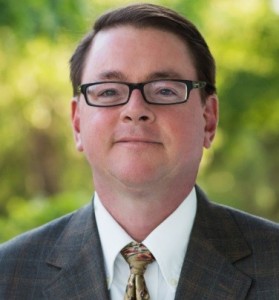 Bryan Balazs
Bryan Balazs
Lawrence Livermore National Laboratory, Livermore, CA
BALAZS, G. BRYAN California Section. Lawrence Livermore National Laboratory, Livermore, California.
Academic Record: Washington & Lee University, B.S., Chemistry, 1985; ITT/Fulbright Scholar, Germany, 1985-86; California Institute of Technology, Ph.D., Chemistry, 1992.
Honors: ACS Fellow, 2010; Shirley B. Radding Award, Santa Clara Valley Section ACS, 2009; Walter Petersen Award, California Section ACS, 2004; Graduate of Lawrence Livermore National Laboratory Leadership Program, 2005; Department of Energy, Award of Excellence, 2004; W. R. Grace Chemistry Fellowship, 1991; National Science Foundation Fellowship, 1986; Rhodes Scholarship State Finalist, 1985; James Lewis Howe Award in Chemistry, 1985; Phi Beta Kappa Sophomore Award, 1983; Stump Prize in German, 1983; Phi Lambda Upsilon; Phi Eta Sigma Freshmen Honor Society, 1982.
Professional Positions (for past ten years): Lawrence Livermore National Laboratory, Staff Chemist, 2000-07, Associate Program Leader, 2007 to date.
Service in ACS National Offices: Committee on Committees, 2010-15; Committee on Committees, Subcommittee for ACS Leadership Institute for New Committee Chairs, 2013–15, Chair 2015; 2012 International Chemistry Olympiad, Chair, 2012; IChO International Steering Committee, 2010-13; PACIFICHEM Organizing Committee, 2006-15; PACIFICHEM 2015 Early Career Chemists Award Program, Chair, 2013-15; Society Committee on Education, 2004-09, Chair 2007-09, Consultant 2010-12, Committee Associate, 2001-03, Graduate Education Advisory Board, Ex Officio, 2007-09; Committee on Education Undergraduate Programs Advisory Board, 2013-15; ACS Board-Presidential Task Force on Education 2008-09; Council Policy Committee, (Nonvoting), 2007-09; Committee on Economic and Professional Affairs, Committee Associate, 2006-09; Professional and Member Relations Task Force on Focused Interest Groups, 2008.
Service in ACS Offices: Member ACS since 1987. California Section: Councilor, 1999-16; Alternate Councilor, 1993-98; Chair, 2011, 1998; Chair-Elect, 2010, 1997; Board of Trustees, 2005-12; Educational Grants Committee Chair, 1999-15; Long-Range Planning Committee, Chair, 1999; Nomination and Election Committee Chair, 2012, 1999; Awards Committee Chair, 2005; Younger Chemists Committee, Chair, 1999-02; Board of Directors, 2010-16, 1997-99.
Member: Phi Beta Kappa; American Association for the Advancement of Science; ACS’ American Association of Chemistry Teachers. ACS Division: Professional Relations.
Related Activities: ACS Career Consultant; Board of Directors, Pedrozzi Scholarship Foundation, 2013-16, Board President, 2014-15; Chemistry Fellowship Application Judge for the Davidson Institute for Talent Development, 2010-14; Post-Doctoral Associate, Lawrence Livermore National Laboratory, 1992-94; Student, University of California, Los Angeles, Management and Project Management Classes; more than 55 journal publications with several book chapters, and 3 patents.
STATEMENT
The statements of the candidates represent their opinions and do not necessarily represent the views of the ACS.
Members are our most important assets. Our profession is in a difficult situation. The employment conditions for chemists have changed considerably in recent years, to an environment where large chemical companies do not hire the majority of recently graduated chemists, and continued pressures on federal and state funding for scientific research have made establishing a scientific career especially difficult. In short, it is a challenging time for many of our fellow ACS members, and improving this situation is my top priority.
We are a membership society, yet we continue to lose members who don’t believe the ACS can do anything to help them or has anything to offer them. We must change this if the ACS, and our profession, is to remain healthy into the future. We must understand the professional needs of all of our members, work to address the employment difficulties that they face, and meet their career and technical needs at every level and in every sector. If we don’t serve our members, we don’t have a membership society. It’s that simple.
I believe that effective solutions to the issues above must involve working more directly with the members who are experiencing these challenges. Our members, and the ACS’ combination of technical expertise and credibility partnered with an extensive grassroots structure represented through local sections, divisions, and international chapters, are the strengths that I believe will be part of the solution that we will use to meet all of our members’ needs.
Employment Matters. The supply and demand for chemists is not in equilibrium. Why? Either because of an oversupply of graduates or because we are not fully preparing our graduates for the jobs that are available, especially with the small businesses and innovative entrepreneurships that offer the majority of employment opportunities. We must also better understand and address the significant implications of global demographic and environmental shifts, changes that will result in the need for chemistry innovations that are relevant to longer lifespans and sustainable resources, and the evolving nature of the job opportunities therein. We cannot create jobs but we can influence our educational system to better prepare students for these future employment trends, and I believe this is where the answer lies. We cannot tolerate an outcome where, after a significant investment in education, the lack of rewarding employment threatens to undermine the scientific potential of many graduating chemists.
Advocacy for Our Profession. The environment that chemistry faces is one of the most challenging in recent memory despite the fact that the benefits that chemistry can offer humanity and our world are greater than ever before. Given almost any global challenge, whether health and standard of living, the environment, or energy and clean water, it is clear that chemists will be part of the solution. However, it is not always universally appreciated that sustained efforts in scientific research are required for our overall well-being, and that these efforts will be even more necessary for the future. Increasingly, chemistry – and often science in general – is met by the public with distrust, apprehension, confusion, and the resulting lack of enthusiasm, let alone support. We must not simply ignore or dismiss their viewpoints, but we must continue to communicate how chemistry has improved lives around the world and will continue to do so.
We Must Work Together. My vision is that “Chemistry for Life” is not just a catchy slogan, but rather that it describes the relationship that the ACS has with its members, their careers, and our profession. This slogan must form the basis for engaging the public to support the science that is needed to make the world a better place. I am one person, but together we are a respected and influential society with more than 158,000 members. Together, we can achieve this vision.
Leadership and Experience Make a Difference. For almost three decades, I have led efforts at the local, national, and international levels of the ACS in the areas of education, science advocacy, employment, and career development. This breadth has given me the perspective of how the ACS operates and what steps are necessary to advance effective initiatives and steward them to completion. It is my experience and commitment that can make a difference. I do not make optimistic promises just for your vote, but I will keep my promise: I will partner with you to address the issues I’ve laid out above, and I pledge to make this my top priority. I would be honored to have your vote.
Thank you. For more information, please visit my website at www.bryanbalazs.org.
Allison A. Campbell
Pacific Northwest National Laboratory, Richland, WA
CAMPBELL, ALLISON A. Richland Section. Pacific Northwest National Laboratory, Richland, Washington.
Academic Record: Gettysburg College, B.A., Chemistry, 1985; State University of New York, Ph.D., Chemistry, 1991.
Honors: ACS Regional Industrial Innovation Award, 2005; ACS Award for Women at the Forefront of Chemistry, 2002; Fellow, American Association for the Advancement of Science, 2013; Gettysburg College Distinguished Alumni Award, 2013; Western New York Pioneers in Science Award, 2011; R&D100 Award, 2006; Federal Laboratory Consortium Award for Technology Transfer, 2006; George W. Thorn Award, State University of New York, Buffalo, 2003; DOE Energy 100 Award for Biomimetic Coatings for Orthopedic Implants, 2001; Young Alumni Achievement Award for Career Development, Gettysburg College, 2000; DOE Basic Energy Sciences Award in Materials Science, 1995; Excellence in Teaching Award; SUNY/Buffalo, 1987; Undergraduate Research Award, Gettysburg College, 1985.
Professional Positions (for past ten years): Pacific Northwest National Laboratory, Associate Laboratory Director, Environmental Molecular Sciences Laboratory (EMSL), 2005 to date, Interim Director, EMSL, 2004-05; Deputy Director, EMSL, 2000-05.
Service in ACS Offices: Member ACS since 1984.
Member: Washington State Academy of Sciences; National Academies Chemical Sciences Roundtable; American Association for the Advancement of Science; International Association of Dental Researchers.
Related Activities: Board member, National Academies Chemical Sciences Roundtable; Chair, Marie Curie Symposium Session, “The National Laboratories, Physical Chemistry in the National Interest,” ACS Fall Meeting, 2011; Testified before the Subcommittee on Energy and Environment, Washington DC, 2009; Devon Walter Meek Lecturer, The Ohio State University, 2007; Session Co-Chair, “Unique Tools for Unique Science at a DOE National Scientific User Facility,” AAAS Annual Meeting, 2006; Conference Organizer, EPSCoR Workshop, Sponsored by DOE and NSF Experimental Program to Stimulate Competitive Research (EPSCoR), 2002; Trained over 10 graduate and post-doc graduate researchers; Published over 33 journal articles, holds 5 patents and 1 license.
STATEMENT
The statements of the candidates represent their opinions and do not necessarily represent the views of the ACS.
Thank you for considering me for President-Elect of the American Chemical Society. ACS is an organization with a long and distinguished record of service to our community, and I would welcome the opportunity to lead it and continue this legacy at a critical moment in our history.
Science has become politicized to an unprecedented degree in the United States. ACS has a central role to play in educating policy makers and the public on the real contributions that chemistry makes every moment of every day to our high quality of life. The fact that federal R&D funding continues a steady year-on-year decline, that the peer review process is under attack, and that perceptions of science and scientists are increasingly negative underscores an inadequate understanding of the importance of science in American society. Earlier this year, the U.S. House of Representatives passed legislation that would cut nondefense discretionary spending deeply — by almost $800 billion dollars — over the next 10 years. If enacted, such cuts would have a lasting impact on U.S. economic competitiveness and security, and would diminish the attractiveness of the sciences as a prestigious and viable career path. I consider turning this situation around to be a societal “grand challenge” and I believe that the ACS can and should help lead that transformation.
Advocacy with Federal Officials
Advocating on behalf of chemistry and science with our elected officials would be my top priority as ACS President-Elect. In my current role, I have worked with the ACS and other professional organizations to advance policymakers’ understanding of science through activities such as Congressional testimony, Congressional office visits, scientific society-sponsored events like Climate Science Day, and science expos on Capitol Hill. Going forward, I would capitalize on the extensive ACS government affairs and legislative network and strengthen partnerships with sister scientific organizations to deepen and sustain advocacy efforts in Washington, D.C., for science education, careers in science and science funding.
Literacy and Appreciation for Science
But we cannot stop there. It is also important that we have a scientifically literate public. We are raising a generation that receives greater benefit from the “transforming power of chemistry” than any other, yet so many are unaware of the profound impacts of chemistry on their lives. While we may not inspire every child to become a scientist or engineer, we can help to raise the overall level of public understanding of the value of chemistry so that they can be informed consumers, voters and environmental stewards. Our ACS membership and organization, including national programs and local sections, offer an extensive network already in place that we can mobilize to highlight success stories and demonstrate how long-term investments in science lead to prosperity through education, the creation of exciting, high-skill jobs, and discovery and innovation.
Telling Our Story Effectively
In today’s digital, always-connected world, we have an unprecedented set of tools we can draw on to communicate the value of chemistry through compelling stories. We will use traditional outlets like print media and in-person meetings in conjunction with social media and emerging media outlets to help elected officials and the public understand the impact of the scientific endeavor on our nation’s prosperity. I will reach out to leading experts in science communication — some of whom are ACS members — and to ACS’s own outreach staff to sponsor special sessions and workshops to help our members become more effective ambassadors for their own work and for our community. Given the importance of science communication, I would also work with national education organizations to integrate communication into science education at the undergraduate and graduate levels.
For the Greater Good
Chemistry and the sciences are potent forces for good in our world. ACS is well-positioned to lead a national conversation about the importance of science in our society, and I welcome the opportunity to lead that conversation on behalf of the ACS membership. My goal is to strive to make the critical role of chemistry in our lives the worst kept secret in our public discourse.
Thank you for your time and consideration. For more information, please visit my website, http://allisonacampbell.tumblr.com/. I appreciate your vote and look forward to working with you and for you.
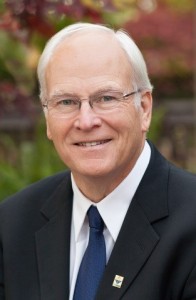 Lee H. Latimer
Lee H. Latimer
NeurOp, Inc., Oakland, California
LATIMER, LEE H. California Section. NeurOp, Inc., Oakland, California.
Academic Record: Tulane University, B.S., 1971; University of Wisconsin, Ph.D., 1976.
Honors: ACS Fellow, 2012; Shirley B. Radding Award, Santa Clara Valley Section, ACS, 2014; Walter B. Petersen Award, California Section, ACS, 2010; Rochester Section Award, ACS, 1991; Chemical Sciences Excellence Award, Elan Pharmaceuticals, 2009; Gold Team Achievement Award, Kodak Research Labs, 1992; NIH Post-Doctoral Fellowship, 1977-79; Phi Beta Kappa, 1971; Sigma Xi, 1971.
Professional Positions (for past ten years): NeurOp, Inc., Head of Chemistry, 2014 to date (a virtual pharmaceutical company); Consultant, 2011 to date; Elan Pharmaceuticals, 1995-2011, Senior Director, Process and Analytical Chemistry, 2005-11, Chemical Hygiene Officer, 2004-10; Lecturer, San Francisco State University, 2012.
Service in ACS National Offices: Council Policy Committee, (Voting) 2013-15, (Nonvoting), 2010-12; Task Force on Councilor Divisor, 2015, Chair, 2015; Task Force on Councilor Travel Reimbursements, 2013-14, Chair, 2013-14; Committee on Local Section Activities, 2007-12, Chair, 2010-12; ACS Fellows Oversight Committee, 2010-11; Committee on Public Relations and Communications, 2003-06, 1994-98, Committee Associate, 2001-02, 1993; Board Committee on Planning, 2010-12; Leadership Institute, Track Leader for Local Sections, 2010-12; Leadership Institute Planning Group, 2011-12; Canvassing Committee, Grady-Stack Award, 1996-98.
Service in ACS Offices: Member ACS since 1972. California Section: Councilor, 2004-15; Alternate Councilor, 2003; Chair, 2004; Chair-Elect and Program Committee Chair, 2003; Long Range Planning Committee, various committees. Division of Organic Chemistry: Liaison to Multi-Program Planning Committee, 2014-15. Rochester Section: Alternate Councilor, 1991-93; Chair, 1988; Chair-Elect, 1987; many other committees. Philadelphia Section: NCW Committee, 1993-94. Santa Clara Valley Section: NCW Committee, 1998. Western Region Board: Chair, 2014 to date; Vice-Chair, 2010-13. California Section Representative, 2007 to date. Western Regional Meeting: General Co-Chair, 2013. Northeast Regional Meeting: Organic Program Chair, 1981.
Member: American Association for the Advancement of Science; American Association of Pharmaceutical Scientists. ACS Divisions: Business Development and Management; Chemical Education; Chemical Health & Safety; Chemistry and the Law; History of Chemistry; Industrial & Engineering Chemistry; Medicinal Chemistry; Organic Chemistry; and Small Chemical Business.
Related Activities: District VI Caucus Chair, 2009; LSAC Sub-Committee on Grants and Awards (IPGs), Chair, 2008-09; Chemists in the Community, Co-organizer, San Francisco ACS National Meeting, 2006; Interview Skills Workshops, Co-founder, joint project of California and Santa Clara Valley Sections, and NorCal Section of AIChE, 2004 to date; Tulane University, School of Science and Engineering Board of Advisors, 2006 to date; University of California–Davis, R. Bryan Miller Symposium Committee, 2013-15; Rochester Council of Scientific Societies, President, 1990-93; Kodak Research Labs, 1979-93; Sterling Winthrop Inc., 1993-95; Adjunct Professor, Rochester Institute of Technology, 1985; Visiting Adjunct Professor, University of Rochester, 1982-83; post-doctoral research at University of California–Berkeley, 1976-77 and University of Wisconsin School of Pharmacy, 1977-79; Co-inventor on >55 issued U.S. Patents, > 35 publications and invited presentations.
STATEMENT
The statements of the candidates represent their opinions and do not necessarily represent the views of the ACS.
The American Chemical Society (ACS) has made a critical difference at every phase of my career. Working on challenges for the ACS has been a productive and rewarding opportunity to apply my experience. I want to share with you my focus and enthusiasm and hope to receive one of your votes to take the momentum of my efforts to the Board of Directors.
As a professional society, we have unparalleled volunteer and financial resources to benefit members, chemistry and science. The transformations in the employment landscape for chemists at all stages of their careers are critical issues, both in type of work and location. The ACS provides many opportunities to develop, grow, lead and achieve. With careful resource management, experimentation and vision, the Board can look beyond the moment in meeting the ACS Strategic Plan built with the voices of volunteer leaders and regular members.
A co-worker’s request for help began my ACS career over three decades ago. At each move in my career, I found ACS friends and resources critically important to finding new positions and getting started. I’ve also been able to significantly assist ACS colleagues in finding new positions through my network. My outstanding member benefit has been networking!
I’ve worked in large and small companies that have dissolved beneath me. I now work in a small company, increasingly the path for chemists. The virtual nature of the company and its videoconference style gives me the time flexibility to meet the challenges of serving on the Board.
Throughout my ACS career, involvement at the section, division and national levels has been delightful and rewarding. In recent years I’ve worked with the Board and other leaders in critical decision areas as chair of the Committee on Local Section Activities (LSAC) and its subcommittee on Innovative Project Grants (IPGs), and as a member of the Council Policy Committee (CPC) and chair of CPC task forces on travel reimbursements and the divisors. As leader of the Local Section Track in the Leadership Institute, I heard directly about the issues of local sections. These efforts have given me a thorough knowledge of ACS governance, structure and resources, key member issues, local section and division issues and activities. Committee work continues to build the network of members and staff that I am delighted to call friends and collaborators.
Now and in the future, the Board and Council face a changing landscape of substantial issues in information management and publications, education support and development, breadth of access and opportunity for budding scientists in a diverse America, continual turnover/outsourcing of industrial positions, growing jobs in a global environment, and a solid public understanding of science and chemistry and their contributions. The efforts of sections and divisions “on the ground” are critical to success. I believe achieving progress in these and other areas comes incrementally by focus, care and experiment.
I particularly want to work with the Board, Council, members and staff in the following areas. We need greater member engagement in local sections and divisions, especially by our industrial members who make up over half the membership. Successful communication and direct interaction have a major impact on member retention and participation.
Increased communication of our public advocacy to members and the public is a critical need to inform and amplify our messages in STEM, job creation and training. I would also like to see a greater effect externally of our public advocacy through the leverage of more than 158,000 members.
Education support and engagement are critical to student success in chemistry and many other subjects. Besides the substantial efforts in our Education Division, there are many programs in local sections and divisions that support and enhance education. We need to highlight these programs and grow and develop others.
Regional meetings are great achievements in volunteer service and play a critical part in the range of ACS opportunities, often being more accessible than national meetings to many members. I want to focus greater ACS resources to enhance the ability of local sections to host a meeting.
The ACS is about opportunity for its members in so many ways. It has certainly been so for me. I enjoy the teamwork to meet new challenges, new colleagues, and apply my experience to make a difference. I ask for your vote to join the ACS Board of Directors and their work to keep the opportunities flowing.
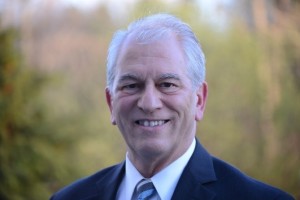 Willem R. Leenstra
Willem R. Leenstra
University of Vermont, Burlington, VT
LEENSTRA, WILLEM R. Green Mountain Section. University of Vermont, Burlington, Vermont.
Academic Record: California State University, Hayward, B.S., 1969; University of Washington, Ph.D., 1979.
Honors: ACS Fellow, 2015; E. Ann Nalley ACS Northeast Region Award for Volunteer Services, 2009; ACS Green Mountain Section, Emerald Award, 2006; Finalist, Kroepsch-Maurice Teaching Award, University of Vermont, 2012-2015; Graduate Teaching Award, University of Washington, 1974.
Professional Positions (for past ten years): University of Vermont, Associate Professor, 1986 to date; Special Assistant to the Provost, 2002-03; Department Chair, 1999-2002, 1991-92; Co-Founder, Endyne Environmental Testing Laboratory, Inc., Vermont and New York, 1987.
Service in ACS National Offices: Committee on Budget & Finance, 2014-16, 2013, Program Review Action Group (PRAG), 2008-09; Council Policy Committee (Voting), 2010-12, (Nonvoting), 2007-09, Task Force on Duties and Responsibilities, 2012; Committee on Meetings and Expositions, 2004-09, Chair, 2007-09, ReACT Task Force, 2005-07; Committee on Local Section Activities 1998-2003; Committee Associate, 1997.
Service in ACS Offices: Member ACS since 1975. Green Mountain Section: Councilor, 1996-2016, 1985-89; Chair, 1993-95, 1984-85; Chair-Elect, 1992-93, 1983-84; Alternate Councilor, 1990-95; Secretary, 1982-84. Northeast Region ACS: Board Vice-Chair, 2014; Board Secretary, 2005-07. Northeast Regional Meeting: General Chair, 35th Northeast Regional Meeting, 2008; General Chair; 24th Northeast Regional Meeting, 1994.
Member: ACS Divisions: Chemical Education; Inorganic Chemistry; and Physical Chemistry.
Related Activities: Committee on Budget & Finance, Subcommittee on Program Funding Requests, 2013-14; CPC, Subcommittee on Constitution and Bylaws, 2010-12; CPC Subcommittee on Long-Range Planning, 2011-12; Invited speaker at the Materials Science symposium, 43rd IUPAC World Chemistry Congress, San Juan, Puerto Rico, 2011; Invited speaker at the 4th International Conference on Porphyrins and Phthalocyanines, Rome, Italy, 2006; Invited Symposium organizer, “Layered and Optical Materials” at NERM 2007; Symposium Organizer, “Layered Materials” at NERM 2008; Committee on Meetings & Expositions, Regional Meetings Subcommittee, Chair, 2006; Consultant, Pearson Publishing; Organizer, General Chemistry Assistance for ALANA & Diversity Students, UVM, 2014 to date.
STATEMENT
The statements of the candidates represent their opinions and do not necessarily represent the views of the ACS.
Fellow Councilors: I am honored to have been invited to stand for election as a candidate for Director-at-Large (DAL). I accepted the candidacy because I feel that my background and experience, both within the ACS as well as outside of it, comprise just the right preparation to take on this call to serve. Since this would be my first term on the Board, I will not be presumptuous and recommend changes in the way the Board conducts itself. Instead, I ask you to please consider my condensed record of experience, in addition to some broad ideas I would like to pursue if elected Director, as outlined below.
Professional Background. My academic history covers a diversity of institutional types, and having appreciated what each has to offer, I feel that I can weigh in on matters of chemical education whenever such should present itself. Currently I am a chemistry professor at a small research university with a vibrant graduate program.
Academic Leadership. On two separate occasions, my departmental colleagues and the Dean, respectively, asked me to lead the department as Chair when unanticipated vacancies occurred. More recently, the university Provost appointed me as Special Assistant serving on our institution’s first contract-negotiating team after the faculty voted to unionize.
Entrepreneurial Experience. Since ACS membership consists of only about 50% academic chemists, it is valuable to have some “real-world” experience. I have that: I was the co-founder of an environmental testing laboratory. The experience left me with an appreciation for the challenges that a small chemical business faces.
Diversity Initiative. Our university has invested substantial resources in attracting ALANA [African, Latino(a), Asian, and Native American] students to diversify its student body. Many of these students are underprepared coming out of high school, and have difficulties in the sciences, in particular. As one strategy to retain these students, I put into place a science-targeted, organized tutorial effort in which ALANA students are invited to spend a once-a-week, two-hour session in the ALANA Student Center’s home.
ACS Leadership Experience. I have been involved with ACS governance since the mid-eighties serving as my local section’s Secretary, and as its Chair for two terms. More pertinent to this candidate’s statement, I have been my local section’s Councilor for 25 years. After seven years on the Local Section Activities Committee (LSAC), I joined the Committee on Meetings & Expositions (M&E). When I was M&E Chair for three years, you may remember me standing in front of you during Council giving updates on improving the National (and Regional) Meetings, as well as reporting on hard decisions I had to make to continue the financial viability of the National Meeting. After a term on the Council Policy Committee (CPC) I currently serve on the Committee on Budget and Finance (B&F). Being a joint Board-Council committee, B&F has a large overlap of interests, and joint meetings, with the Board. It has been an extremely valuable training ground in preparation to a potential position as Director.
The Future. The ACS is a magnificent example of a professional organization “done right”. In reaction to constantly changing economic and social landscapes we are regularly re-constituting membership benefits, and we are perpetually reviewing financial models by which to ensure fiscal health. This drive to always advance our Society is only possible due to the exquisite partnership between an excellent staff and a dedicated group of Councilors plus other volunteers. In that spirit of continual improvement, a couple of broad-stroke ideas come to mind that I would like to work on if elected Director-at-Large.
(1) My many years of being in active governance leadership positions leaves me no doubt about the fact that the rank-and-file ACS members do not know, let alone appreciate, what the ACS Board does, nor how important their decisions are as they impact the lives of chemists. I would like to explore the idea of “Councilors as a Bridge” in which we devise a mechanism for Councilors to take a pro-active role as representatives that will make our Society’s governance more transparent.
(2) In my role as Vice-Chair of the Northeast Region Board, I am very close to a recent idea that sprang from our Executive Committee: to develop an AtlantiChem meeting similar to PacifiChem that convenes in Hawaii every 5 years. Thus, I will push the Board to support this idea as fully as was done for PacifiChem.
In conclusion, I believe that my extensive professional, leadership, and governance experience positions me well for effective contributions to the ACS Board of Directors. And I respectfully ask you for one of your votes for that position.
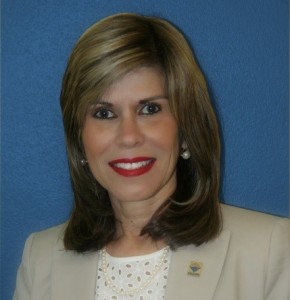 Ingrid Montes
Ingrid Montes
University of Puerto Rico, San Juan, PR
MONTES, INGRID Puerto Rico Section. University of Puerto Rico, San Juan, Puerto Rico.
Academic Record: University of Puerto Rico, B.S., 1980; Ph.D., 1985.
Honors: ACS Volunteer Service Award, 2012; ACS Fellow, 2010; Igaravidez Award, ACS Puerto Rico Section, 2006; Salute to Excellence Award, Committee on Community Activities, National Chemistry Week Coordinator, 2004; Chemical Education Award, ACS Puerto Rico Section, 1999; Fellow International Pure and Applied Chemistry, 2006; Academic Excellence and Productivity Award, University of Puerto Rico, 1997.
Professional Positions (for past ten years): Assistant Dean of Graduate Studies and Research, College of Natural Sciences, University of Puerto Rico-Río Piedras Campus, 2015 to date; Professor, University of Puerto Rico-Río Piedras Campus, 1998 to date, Pre-MARC Program Coordinator, 1992 to date.
Service in ACS National Offices: Board of Directors, Director-at-Large, 2013-15; Councilor ex officio, 2013-15; Board Committee on Public Affairs & Public Relations, 2013–14; Board Committee on Professional & Member Relations, 2013–15, Chair, Web Strategy & Innovation Subcommittee,2014-15; Board Committee on Grants & Awards, 2015; Committee on Committees, 2010-12; Committee on Education, 2001-09; Committee on Community Activities, 2004-09, Chair, 2007-09; Editorial Board, Journal of Chemical Education, 2010 to date; National Chemistry Week Task Force, 1999-04; Advisory Board, ChemMatters Magazine, 2006-09, Chair, 2007-09; Task Force on Undergraduate Education, 1999-01.
Service in ACS Offices: Member ACS since 1980. Puerto Rico Section: Councilor, 1999-13; Chair, 2011, 2003, 1995; Chair-Elect, 2010, 2002, 1994; Treasurer, 1998; Alternate Councilor, 1996-97; Secretary, 1992-93; Faculty Advisor of the Student Affiliate Chapter of the University of Puerto Rico-Río, Piedras 1989 to date; National Chemistry Week Coordinator for 23 years and CCED Coordinator for 8 years. Division of Chemical Education: National Meetings Program Committee, 2002-08; Long Range Planning Committee, 2004 to date, Chair 2010 to date; 2007 ACS Fall National Meeting, Program Co-Chair. Southeast Regional Meeting: General Chair, 2009; Chair, Theme Team for the International Year of Chemistry Celebration, 2011; Representative of the ACS at the IUPAC 2011 Organizing Committee.
Member: International Union of Pure and Applied Chemistry; American Association for the Advancement of Science; Puerto Rico Chemists Association. ACS Divisions: Chemical Education; History of Chemistry; Organic Chemistry; and Professional Relations.
Related Activities: Founder of the “Festival de Química” (development of resources and implementation of international events held in Colombia, México, Chile, Perú, & China) for the American Chemical Society); Coordinator of the first ACS webinars in Spanish; PI & Organizer of the project: Are Women Still Underrepresented in Science? ACS Challenge Grant for the 2011 IUPAC World Congress; Nominated for the 2009 US Professors Years Program sponsored by CASE; Nominated for the National Society of Collegiate Scholars (NSCS) 2009, Inspire Integrity Award; National Chemistry Week Coordinator, 2004 to date; published 20 journal articles and a laboratory textbook.
STATEMENT
The statements of the candidates represent their opinions and do not necessarily represent the views of the ACS.
I want to begin by emphasizing how privileged and honored I am to be considered for a second term as a member of the ACS Board of Directors. My first term has been amazingly full of challenges and enriching experiences. I learned to become an integral part of a hard working team. I am proud to be part of the current Board because we effectively make use of the diversity around the table through respectful discussions and data driven decision-making. We are working together for the Society and our membership.
In our recent past, the world has faced many challenges, including a significant economic crisis. As a consequence other challenges have surfaced including unemployment/under employment, reductions in federal funding, changes in the global enterprise, and environmental concerns to mention a few. According to Einstein “The crisis is the best blessing that can happen to people and countries, because the crisis brings progress. Creativity is born from the distress, as the day is born from the dark night.” ACS is committed and is working hard to bring progress and strengthen the excellence of our profession in time of crisis. The four strategic planning goals are areas full of opportunities and if re-elected, I pledge to continue to support and work tirelessly on these critical strategic objectives.
Provide information– CAS and Publications must maintain the highest quality of ACS journals and services while developing strategies to deal with issues associated with an open access platform. ACS will continue to provide our authors innovative options, including new journals, to showcase their work.
Advance member careers– by enriching services to members. Through ACS Career Navigator and webinars, ACS is seeking new and more comprehensive opportunities to increase the competitiveness of our members in the chemical enterprise.
Improve education– ACS will continue to set the bar for quality and excellence in chemistry and science education. The establishment of the American Association of Chemistry Teachers, the revision of the ACS guidelines by the Committee on Professional Training, and the continuing support of successful programs, such as Student Chapters, ChemClubs, Project SEED , and the Scholars Program is evidence of a deep understanding and commitment to improve education.
Communicate chemistry’s value– through the Chemistry Ambassadors program; volunteers are working diligently to improve peoples’ perception of chemistry and its relevance to daily life. Through the Act4Chemsitry network, public policies, and Advocacy to Congress, ACS is leading the message for supporting science education and research. I cannot emphasize enough how important it is that every ACS member joins these efforts to increase our visibility in Congress and in the general community.
The Board of Directors has the responsibility to guide and direct the Society in fulfilling its mission; to advance the broader chemistry enterprise and its practitioners for the benefit of Earth and its people. How can I support the Board? During my thirty-five years as an ACS member, I have been a persevering dedicated volunteer, a very active local section leader and offered motivating empathetic support, devoted to member’s needs. During my three years on the Board, I have served as a member of its committees on Professional and Members Relations (PMR), Public Affairs & Public Relations (PA&PR), and recently on Grants & Awards (G&A). Prior to these, I also served as a member or chair of many other ACS committees. With the combination of my ACS experience and my thirty years as an educator, I have sharpened my organizational and leadership skills. With twenty-five years as a Faculty Advisor for an ACS student chapter I have been supporting and identifying opportunities to develop student members into a new cadre of future leaders and highly skilled chemistry professionals. As the founder of the “Festival de Química”, and my support of the implementation of webinars in Spanish, I have been an international networking facilitator. Furthermore, as a representative of a minority group, my commitment is to work to identify the needs of all members regardless of their geographical location. ACS programs and activities have always been outstanding. This is due to the dedication, enthusiasm and support from our members, something that I highly value, respect and appreciate. Thank you!
Friends, I am committed to take on all challenges and to continue to work closely with the Board of Directors, new Executive Director and CEO, Committees, Local Sections, Divisions, and all members of our Society to find creative solutions and to bring progress to our profession during time of changes. I urge you to vote, and I would be honored by your support. Please consider re-electing me as one of your Directors at Large.
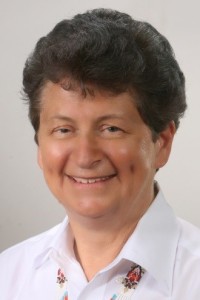 Mary Jo Ondrechen
Mary Jo Ondrechen
Northeastern University, Boston, MA
ONDRECHEN, MARY JO Northeastern Section. Northeastern University, Boston, Massachusetts.
Academic Record: Reed College, B.A. (ACS certified), Chemistry, 1974; Northwestern University, Ph.D., Chemistry, 1978.
Honors: Outstanding Service Award, Interstate Technology & Regulatory Council, 2005; Outstanding Contributions Award, Interstate Technology & Regulatory Council, 2004; Excellence in Teaching Award, Northeastern University, 1989; Alfred P. Sloan Foundation Fellowship, 1987-91; NATO Postdoctoral Fellowship, 1980.
Professional Positions (for past ten years): Professor of Chemistry and Chemical Biology, Northeastern University, 1990 to date.
Service in ACS National Offices: Committee on Minority Affairs, 2012-17, Committee Associate, 2011; Graduate Education Advisory Board, Liaison, 2013; Presidential Task Force on Implementing Committee on Professional Trainings Diversity Report, 2009-10.
Member: American Indian Science and Engineering Society; Biophysical Society; International Society for Computational Biology; Protein Society; Society for the Advancement of Chicanos and Native Americans in Science. ACS Divisions: Biological Chemistry; Computers in Chemistry; and Physical Chemistry.
Related Activities: Board of Directors, American Indian Science & Engineering Society, 2007-10, Chair of the Board, 2011-13; Committee of Visitors, National Science Foundation, Chemistry Division, 2007; Molecular and Cellular Biology Division, 2014, 2011; Board of Advisors, Interstate Technology & Regulatory Council, 2008-13; Regional Editor, Current Bioinformatics, 2007 to date; Editorial Board, Current Bioinformatics, 2005 to date; Editorial Board, The Open Access Informatics Journal, 2007-09; Board of Directors, Telluride Research Center, Telluride, Colorado, 2005-07; Board of Directors, North American Indian Center of Boston (NAICOB), 1999 to date; Board President, 2011 to date; Open Chemistry Collaborative in Diversity Equity (OXIDE) Advisory Board, 2012-18; Numerous invited and contributed technical presentations for Biological, Computers in Chemistry, Medicinal, and Physical Divisions, and Presidential Symposia, at ACS National meetings; published 17 articles in ACS and non-ACS journals, 2010-15.
STATEMENT
The statements of the candidates represent their opinions and do not necessarily represent the views of the ACS.
I have two major goals for the ACS. First, the ACS must position itself to remain a strong, vibrant, and respected organization in the future. Second, our organization must play a leadership role in addressing the biggest challenges faced by our country and by the world. To achieve these goals, we must recruit and retain members who are fully engaged and who find both professional and personal reward through active participation in ACS. We must also strengthen our message about the importance of science to a wide audience. Our strength and influence as an organization depend on our members.
Member retention and outreach must be high priorities. This requires engaging members in all career stages and in all sectors. Specifically, we need to improve efforts to involve younger chemists in all ACS activities, including governance, divisions, committees, and events. We need to provide services of value and activities that capture the interest of chemists in all sectors, including industry, government, non-profit, and academia. Providing valuable service to our members in industry is of personal importance to me because many of my former Ph.D. students are now serving in industry in such areas as pharmaceuticals, genomics, and biotechnology. I want them to continue to be active contributors to our organization.
Broadening participation in the chemical sciences is the right thing to do; it is also in our own best interests. Since basic research is supported chiefly by public funds, public support for science is critical. People are more likely to support scientific research if they have some knowledge of science or if they have a personal connection such as a family member in science. To be at its strongest, our country must take advantage of our full talent pool; unfortunately we have not seen this happen yet. The ACS needs to encourage and welcome a diverse pool of scientific talent in our organization. I am proud that we, particularly through the Scholars program and through engagement with science diversity organizations, have taken positive steps for diversity and inclusion. I want to see these efforts continued and enhanced. The science professions are still generally lacking effective strategies for broadening participation; the ACS should take a leadership role in developing and establishing strategies that work.
We need to spread the message widely that research and scientific discovery are important initiators of economic growth and job creation. Promotion of investment in areas such as antibiotics, vaccines, cybersecurity, and novel threat detection technologies is essential for our future national security. The U.S. needs to retain its leadership position in medical diagnostics and treatments; chemistry is central to discovery and innovation in these areas. Innovative technologies in areas such as green chemistry, biofuels, energy storage, renewable energy, agriculture, and environmental remediation address current global problems in sustainability and also present tremendous opportunity for new business development and job growth.
Technology transfer of scientific innovation to the marketplace is critical to economic growth and to U.S. competitiveness in the global economy. The ACS is in a position to disseminate information and to promote partnerships to help to catalyze the development of new industries based on new technologies, for the benefit of the country and for job growth in our profession. In addition, chemical education should include some component pertaining to entrepreneurship.
A little bit about Mary Jo Ondrechen: My background is in theoretical physical chemistry. I serve as Professor of Chemistry and Chemical Biology and as Principal Investigator of the Computational Biology research group at Northeastern University in Boston. We study how enzymes function, we develop predictive methods for functional genomics, and we work with medicinal chemists on drug discovery projects. We have submitted a total of eight abstracts to the Fall ACS National meeting in the BIOL, CHED, COMP, and PHYS Divisions and we have participated recently in the MEDI Division. I am an experienced non-profit Board member, having served as the 2011-2013 Chair of the Board of Directors of the American Indian Science and Engineering Society (AISES). I also served for six years (2008-2013) on the Board of Advisors of the Interstate Technology and Regulatory Council (ITRC), a non-profit organization that evaluates and facilitates the deployment of innovative technologies to solve environmental problems. My other passions besides Chemistry include promoting science diversity, advocacy for the Native American community, and environmental advocacy.
Please see www.ondrechen.org for more information.
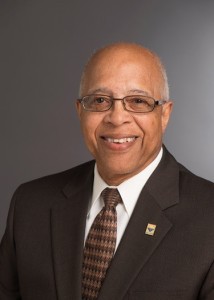 Thomas W. Smith
Thomas W. Smith
Rochester Institute of Technology, Rochester, NY
SMITH, Thomas W. Rochester Section. Rochester Institute of Technology, Rochester, New York.
Academic Record: John Carroll University, B.S., 1969; University of Michigan, Ph.D., 1973.
Honors: ACS Polymer Division, Fellow, 2011; ACS Fellow, 2009; ACS Division of Polymer Chemistry, Chair Recognition Award, 2003; ACS, Rochester Section Award, for Outstanding Service 1996; African-American Who’s Who, Greater Rochester Area, Mike F. Molaire Editor, Norex Publications, Award, 1994; Xerox Corporate Research Group Team Excellence Award, 1989; ACS Rochester Section, Chair Recognition Award, 1982; American Men & Women of Science, Community Educators Award, 1975-76; Rackham Fellowship, 1971-72; Eastman Kodak Fellowship, 1971-72.
Professional Positions (for past 10 years): Rochester Institute of Technology, Professor, 2002 to date; Golisano Institute for Sustainability, Interim Academic Director, 2010-12.
Service in ACS National Offices: Committee on Minority Affairs, Associate Member 2014-15; Committee on Education, 2005–13, Associate, Member, 1997-2004; Board Special Committee on Corporation Associates, 1990-2001; Advisory Board, Graduate Education, 2007-09; Advisory Board, Petroleum Research Fund, 1994-99.
Service in ACS Offices: Member since 1970. Rochester Section: Immediate Past Chair, 1983, Chair, 1982, Chair-Elect, 1981, Treasurer, 1980-81, Member-At-Large, 1976-79. 25th Northeast Regional Meeting: General Chair, 1995. Division of Polymer Chemistry: Chair, 2002; Chair-Elect, 2001; Vice-Chair, 2000; Alternate Councilor, 1994-99, 1980-81.
Member: NOBCChE (National Organization for the Professional Advancement of Black Chemists and Chemical Engineers). ACS Divisions: Polymer Chemistry; and Polymeric Materials Science and Engineering.
Related Activities: ACS Project SEED, Certificate of Appreciation in Recognition for Commitment and Outstanding Service, presented in celebration of the 40th Anniversary of Project SEED, 2008; Co-Chair, Symposium on Polymers in Electrophotography, 237th ACS National Meeting, 2008; Co-organizer, ACS Polymer Division Workshop, Photonics 2005, Orlando, FL; Co-Chair, Field-Responsive Polymers Symposium, POLY Millennial 2000; Co-Organizer, Frontiers in Polymer Science in the 21st Century – Macromolecular Secretariat, 219th ACS National Meeting, San Francisco, 2000; Xerox Corporation, 1973-2002, Research Fellow, 1996-2002; Certificate of Appreciation in Recognition of Support to the ACS Scholars Program, 1999; Certificate of Appreciation in Recognition of Service, 1993-99 on the Petroleum Research Fund Advisory Board, 1999; Co-Chair, Biennial Meeting, ACS Division of Polymer Chemistry, Santa Barbara, CA, 1996; Co-Chair, 1993 ACS Corporation Associates Symposium, “Diversity in the Chemical Workforce of the 21st Century,” Chicago, 1993; ACS Certificate of Recognition for Leadership of the Rochester Section-Winner of the 1983 Award for Outstanding Performance by a Local Section, 1983; 53 journal articles, 70 U.S patents.
STATEMENT
The statements of the candidates represent their opinions and do not necessarily represent the views of the ACS.
It is a distinct honor to have been nominated as a candidate for Director-at-Large of the world’s largest scientific society and the organization chartered by Congress to “. . . foster public welfare and education, aid the development of our country’s industries, and add to the material prosperity and happiness of our people.”
Giving voice to our shared perspectives
It is this call to stewardship that I focus on in my candidate statement. As Members of the ACS and as a scientific society, we are obligated by our Charter to be a force in the current dialogue on climate change, sustainability, and science education. Indeed the Society has issued important position statements on “Global Climate Change,” “Sustainability and the Chemical Enterprise,” and “Science Education Policy.” But we must do more! We must be ambassadors for action, conveying the ramifications of global warming with greater urgency and clarity. We must leverage the knowledge, experience and perspective of the chemistry enterprise to better articulate and exemplify the environmental, social, and economic principles that define sustainability. We must be an even greater resource, at State and National levels, in focusing science education policy. If elected to be a member of the Board of Directors I will work tirelessly to give greater voice to our efforts in these areas and join with those who have been working to translate our policy statements into impactful initiatives that improve STEM education, promote ecologically sustainable practices, and communicate the reality of climate change to the American people. As educators, scholars and professionals in the chemistry enterprise we are uniquely positioned to speak with authority on these matters.
Diversity
In this year in which we are celebrating the contributions of Henry Hill to the ACS and the chemical enterprise, it is important to recognize our community of members and the leadership of the ACS for embracing forward thinking principles of diversity and inclusiveness. Yes, the Society also has a “Statement on Diversity.” More importantly, we have a track record of inclusion of women and minority populations in governance and activities of the Society. This being said, there is more to be done. As a member of the Board of Directors, I would work tirelessly to build on this legacy and engage every constituency in our chemical community and chemical enterprise in the critical initiatives of the Society.
Who am I?
I am one of those persons who, as a child, were given a Gilbert Chemistry set. Accordingly, I have been a chemist since the age of 12 and an active member of the ACS since 1970, serving in elected and appointed roles at Local Section, Division and National levels of the Society since 1976. By virtue of 7 years as a technician and chemist at the Lubrizol Corporation in Cleveland, Ohio and 28 years in research at the Xerox Corporation in Webster, New York, in my core, I am an industrial scientist. Moreover by virtue of 13 years as a member of the faculty at the Rochester Institute of Technology, I am also an academic scientist and educator. If elected as Director-at-Large, I may therefore have the experience and background to represent you and bring your perspective to the table.
I would be honored to serve you!
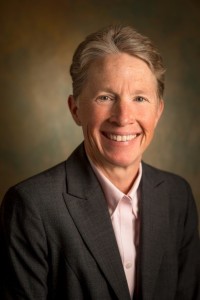

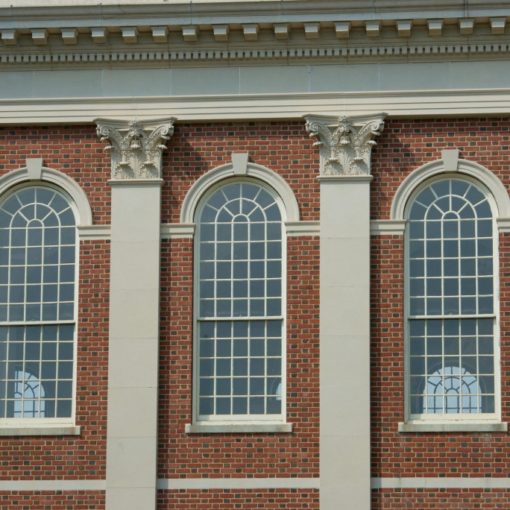


2 thoughts on “2015 ACS National Election Candidates”